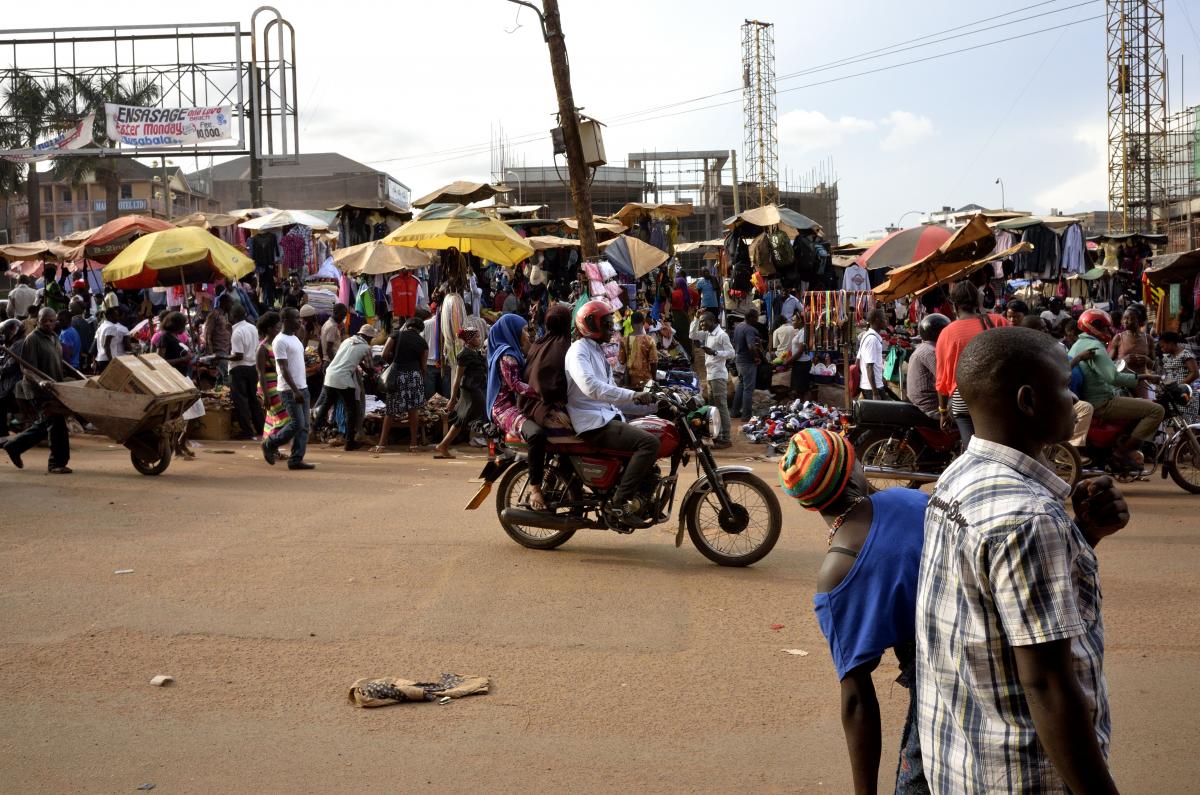Priority Action 4: Invest in justice services and expand legal aid
A strong correlation exists in countries where there is weak or non-existent rule of law and where levels of inequality, exclusion, insecurity and increased violence are extremely high. Individuals in these conditions are subject to the highest risks but have no meaningful access to justice institutions.
In circumstances where state and non-state justice systems have significant deficits, working with paralegals or supporting NGO-led dispute resolution may be an important option to support reform. Specific actions could include training mediators/paralegals in customary and statutory law and associated skills such as mediation, investigation, advocacy, and community education with a view to improving legal awareness.
While working to improve national and local justice services, governments must ensure sufficient investment in legal aid. States should ensure that those disproportionately impacted by the COVID-19 crisis have access to legal aid, offering help so that legal issues do not become larger problems. Legal aid services should be prioritized for the most vulnerable, with consideration for legal issues anticipated as a result of the pandemic and ensuing socio-economic challenges.
SDG 16.3 calls for equal access to justice for all. Despite evidence of the benefits of investing in justice, access to justice remains limited in many countries and has been made worse by COVID-19. Only 1.5% of all aid is spent on justice, with the least being spent in low-income countries whose justice seekers are often those most in need. $240 million is spent on justice in low-income countries, falling short of the $13 billion needed annually. Investing in low-cost and people-centered local justice shows demonstrable returns on investment.
HIGHLIGHTS
Empowering justice seekers at the local level in Uganda through legal aid

Despite gains made to improving justice in Uganda, the sector still faces significant challenges relating to funding and capacity, public perceptions of pervasive corruption, inaccessibility of services for poor sections of the population, low quality and sustainability of legal aid and information services, costliness, and slow speeds of dispute resolution, among others.
These challenges have negatively affected citizens’ confidence in the formal system, leading people to resort to other means to seek recourse, and may also increase the likelihood of violence and further corruption.
IDLO is supporting the Government of Uganda’s Justice, Law and Order Sector (JLOS) to implement a five-year Community Justice Program (CJP) to support the efforts of the Government, non-state institutions, and the people of Uganda in securing accessible, quality and sustainable justice services for citizens – particularly those living in rural, poor and other disadvantaged communities.
The program supports both state and non-state legal aid, legal empowerment and other justice delivery interventions. A major component of the program is enhancing the capacity of justice actors at the national, district and community levels to provide the most vulnerable and marginalized citizens with quality and equitable legal knowledge, aid and redress.
Impactful outcomes of the project were the co-creation of policies between government and civil society, the increased ability of these groups to monitor and report on the effects of such policies, and the creation of feedback loops between civil society and the state to ensure effective service delivery.
Find out more:
Strengthening legal aid and access to justice for the elimination of violence against women in Afghanistan

Although statistics are hard to obtain and underreporting is common, indicators have pointed to a worsening situation for women and girls and rising violence since the start of the COVID-19 pandemic in March. The effective allocation of legal aid to ensure access to justice is critical now more than ever, particularly as the COVID-19 pandemic has further strained already limited resources.
As part of IDLO’s work to enhance the provision of legal aid in Afghanistan, IDLO is working with the Ministry of Justice in the development and establishment of a Legal Aid Online Database. The database tracks legal aid cases for the Ministry of Justice and several NGOs and is designed as both a tracking and a case management tool that supports the efficient distribution of services by organizations.
The database is functional in 34 provinces and available in Dari, Pashto and English. At the end of May 2020, the database had a total number of 24,311 entries. The data provides a comprehensive assessment of justice needs and funding gaps, including data of criminal defence providers, as well as civil, family and victim protection legal services. This body of evidence will assist national authorities and international partners in assessing the impact of increasing insecurity on the administration of justice in Afghanistan to ensure equal access to justice for all.
Find out more:

